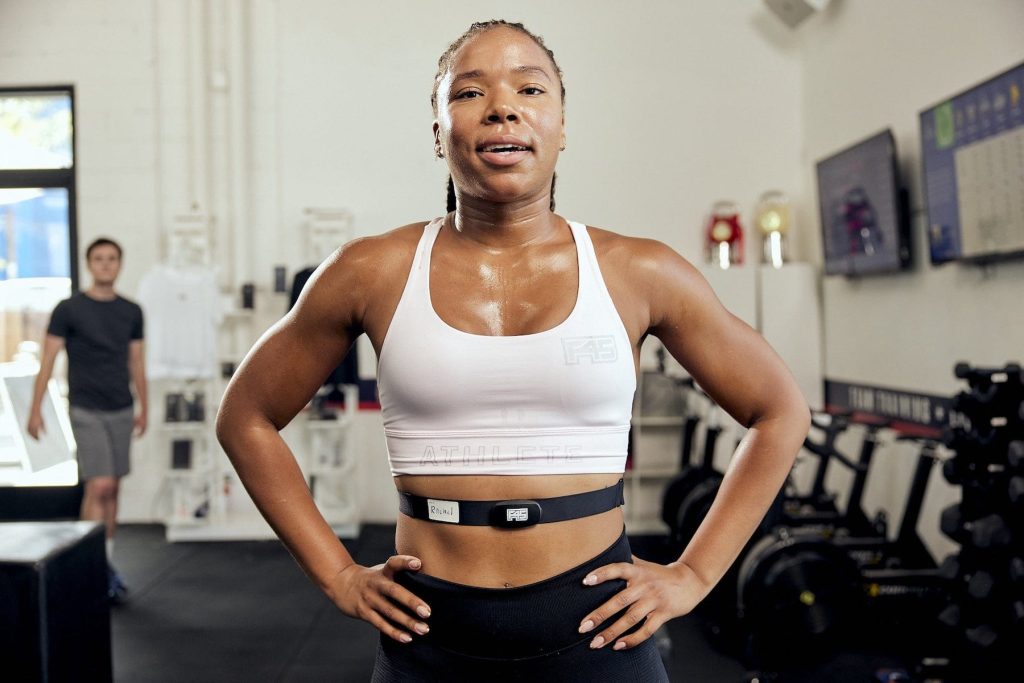Resilience in Sports: Growth Mindset Techniques for Nigerian Athletes

The Importance of Resilience in Nigerian Sports
Nigerian athletes often find themselves in high-pressure situations where the ability to maintain focus and bounce back is essential. The journey to achieving athletic excellence is rarely straightforward, with various obstacles such as injuries, fierce competition, and the stress of expectations. Therefore, developing a growth mindset and enhancing resilience becomes paramount for those looking to thrive in their respective sports.
To fully understand resilience, it is crucial to recognize its key components. Adaptability plays a vital role; athletes must be able to modify their training regimens or competitive strategies when faced with unexpected challenges. For instance, Nigerian sprinter Tobi Amusan demonstrated remarkable adaptability in the 2021 Tokyo Olympics, overcoming strong competition and adverse weather conditions to win gold.
Persistence is another critical aspect of resilience, requiring athletes to push through difficulties. The story of Nigeria’s basketball team, which faced numerous rejections before qualifying for the Olympics, is a testament to how persistence can yield significant results. They trained harder and adjusted their tactics, showcasing that perseverance can indeed pay off.
Moreover, positive self-talk serves as a valuable tool in an athlete’s mental toolkit. Many elite Nigerian athletes, such as football legend Jay-Jay Okocha, have spoken about the importance of maintaining a positive inner dialogue during times of challenge. This kind of encouragement bolsters confidence and reduces anxiety, allowing athletes to perform at their best when it counts.
Effective Techniques for Building Resilience
Implementing effective techniques for fostering resilience is vital for athletes. One significant approach is goal setting. Establishing clear, achievable objectives helps athletes stay focused and motivated. For instance, young Nigerian footballers can set short-term goals such as improving passing accuracy, which cumulatively lead to long-term success on the pitch.

Visualization is another powerful technique that athletes can use to enhance performance. By vividly imagining themselves succeeding, athletes can mentally prepare for the actual competition. Many successful athletes, including Nigerian track stars, use visualization to envision crossing the finish line first, thereby boosting their confidence before heading to the starting blocks.
Additionally, embracing failure as a learning opportunity transforms setbacks into valuable experiences. Nigerian long-distance runner Pheidippides, for example, faced numerous defeats early in his career but used those experiences to refine his technique, ultimately leading him to prominence in international competitions. Recognizing that failure is a step toward improvement can enable athletes to cultivate a more resilient mindset.
By integrating these growth mindset techniques into their training regimens, Nigerian athletes can better equip themselves to navigate the challenges of competition. The tools for developing resilience not only prepare them for the rigors of sports but also inspire generations to come, highlighting the transformative power of a resilient mindset in achieving greatness.
YOU MAY ALSO LIKE: Read read another article
Introducing Resilience: The Foundation of Athletic Success
The concept of resilience in sports transcends mere toughness; it is the ability to adapt, persist, and maintain focus despite challenges. For Nigerian athletes, navigating a complex ecosystem of physical, emotional, and environmental hurdles is critical for success. The reality of competing at national and international levels often involves various adversities, from the high stakes of championships to rigorous training environments. Understanding and developing resilience equips athletes with the mental fortitude required to excel.
In a country rich with talent, Nigeria has produced world-class athletes across multiple sports disciplines. However, the pathway is seldom smooth. Thus, resilience becomes not just a personal asset but a collective necessity. Athletes like Blessing Okagbare, a celebrated sprinter and long jumper, emphasize the pivotal role that bouncing back from injury and disappointment has played in their careers. By embodying resilience, Nigerian athletes set themselves up to overcome barriers and achieve their aspired accolades.
Core Elements of Resilience in Sports
To cultivate resilience, athletes must focus on core elements that contribute to a growth mindset. Here are key components that Nigerian athletes should consider:
- Self-awareness: Understanding personal strengths and weaknesses allows athletes to tailor their mental strategies effectively. This awareness is crucial when assessing how to react in challenging scenarios.
- Emotional regulation: The ability to manage emotions, particularly fear and anxiety, significantly impacts performance. Techniques such as deep breathing and mindfulness can help athletes maintain calm in high-pressure situations.
- Social support: Building a network of coaches, mentors, and teammates fosters a strong foundation for resilience. These relationships offer not only guidance but also encouragement and motivation during tough times.
- Adaptability: The capacity to change strategies based on circumstances or feedback is essential. Whether it’s altering a training plan after an injury or rethinking game strategies mid-competition, adaptability is crucial in the ever-evolving landscape of sports.
Integrating these concepts into daily routines can profoundly influence an athlete’s journey. By embracing a growth mindset—where challenges are seen as opportunities for development—Nigerian athletes can master resilience and propel themselves towards success. For example, Nigerian wrestler Daniel Igali, who turned adversity into triumph after facing defeat, illustrates how cultivating a resilient mindset can lead to outstanding achievements at the highest levels.
Furthermore, focusing on resilience doesn’t only benefit athletes during competitions; it also plays a crucial role in their overall personal development. As they encounter various life challenges, the skills fostered through sports can empower them in all facets of life, providing a solid foundation for future endeavors.
In the following sections, we will delve deeper into specific growth mindset techniques that Nigerian athletes can harness to build their resilience, ultimately enhancing their performance and satisfaction in sports.
Exploring Growth Mindset Techniques for Nigerian Athletes
In the competitive world of sports, the resilience of athletes often hinges on their ability to adopt a growth mindset. This concept, popularized by psychologist Carol Dweck, is crucial for Nigerian athletes aiming to overcome the multifaceted challenges of training, competition, and personal development. Embracing a growth mindset involves understanding that skills and abilities can be developed through dedication and hard work, rather than being perceived as fixed traits.One significant technique for fostering a growth mindset is through positive self-talk. For athletes, the way they communicate with themselves can greatly influence their performance. By replacing negative thoughts with affirmations and constructive feedback, Nigerian athletes can build confidence and resilience, enabling them to tackle obstacles more effectively.Moreover, the practice of goal setting plays a pivotal role in cultivating a growth mindset. Athletes are encouraged to set both short-term and long-term goals that are realistic yet challenging. This not only provides a sense of direction but also allows them to measure their progress, celebrate small wins, and learn from setbacks. By approaching goals with flexibility, athletes can adapt their strategies when faced with difficulties, further reinforcing their adaptability and resilience.Lastly, the importance of mentorship and support systems cannot be overstated. Learning from experienced athletes and coaches who exemplify a growth mindset can provide valuable guidance and inspiration. In team-based sports, fostering a supportive environment where teammates uplift one another creates a culture of resilience. This communal approach can amplify individual growth, as athletes learn from one another’s experiences and challenges.Implementing these techniques in the Nigerian sports landscape can not only enhance individual performance but also contribute to the overall development of sports in the country. As athletes cultivate resilience through a growth mindset, they will be better equipped to handle the pressures of competition and enhance their potential for success.
| Growth Mindset Techniques | Advantages |
|---|---|
| Positive Self-Talk | Builds confidence, reduces anxiety, and enhances focus during competitions. |
| Goal Setting | Provides direction, encourages accountability, and fosters a sense of achievement. |
| Mentorship | Offers guidance, inspiration, and a support network to navigate challenges. |
This approach to resilience not only empowers athletes on an individual level but also cultivates a robust sporting culture in Nigeria. Understanding and applying these techniques can lead to significant advancements in their athletic journeys and overall potential on the global stage.
SEE ALSO: Click here to read another article
Growth Mindset Techniques to Enhance Resilience
To effectively harness resilience, Nigerian athletes must adopt specific growth mindset techniques that promote mental toughness and adaptability. These strategies not only help in overcoming immediate obstacles but also lay the groundwork for long-term success in their athletic careers. Below are several pivotal techniques that can empower athletes to bolster their resilience:
Visualisation Techniques
Visualisation is a powerful mental exercise where athletes picture themselves succeeding. This technique, widely used by elite athletes globally, encourages positive thinking and prepares the mind for competition. Nigerian footballer Victor Osimhen often speaks of how visualising scoring goals during match preparations has built his confidence. By incorporating visualisation into their routines, athletes can transform anxiety into excitement, enhancing performance under pressure.
Goal Setting
Establishing short-term and long-term goals acts as a roadmap for athletes. Breaking larger objectives into smaller, manageable tasks enables consistent progress while fostering a sense of achievement. For instance, budding Nigerian javelin throwers can set incremental targets for distance improvement rather than fixating solely on national records. This practice fuels motivation and reinforces the notion that success is achieved through sustained effort and patience.
Embracing Failure as a Learning Opportunity
One of the most challenging aspects of competitive sports is dealing with failure. However, athletes can develop resilience by viewing setbacks as learning opportunities. The story of Nigerian basketball player Hakeem Olajuwon, who faced numerous defeats before achieving his NBA success, exemplifies this mindset. Athletes should analyse their losses to understand what went wrong and how to improve, rather than allowing disappointment to deter them. This reflective approach enables growth, keeping individuals focused on their long-term objectives.
Maintaining a Positive Internal Dialogue
The inner voice that speaks throughout training and competition profoundly affects performance. Nigerian athletes can cultivate resilience by encouraging a positive internal dialogue. Instead of succumbing to negative thoughts that may arise during intense training or competitions, they should replace those thoughts with affirmations. Encouragements like “I am strong” or “I can overcome this challenge” can help athletes maintain confidence and composure when it matters most.
Mindfulness and Stress Management
Practising mindfulness techniques—such as meditation, yoga, or even progressive muscle relaxation—can significantly enhance an athlete’s ability to cope with stress and maintain focus. These practices have become increasingly popular among international athletes, including Nigerian track and field stars. Research indicates that athletes who regularly engage in mindfulness are often better at controlling their arousal levels and can enhance focus during crucial moments of competition.
Research corroborates that athletes grounded in mindfulness tend to showcase improved emotional regulation and performance consistency. For Nigerian athletes, this is especially important when facing the pressures of expectations, competition, and sometimes self-doubt. Incorporating these mindfulness techniques into training regimens offers another dimension to resilience building.
As Nigerian athletes consider these growth mindset techniques, the impact of resilience—an irrepressible drive to push forward despite challenges—becomes evident. Athletes who integrate these practices not only enhance their sports performance but also cultivate strength and perseverance that will serve them in all facets of life.
RECOMMENDED: Check out this similar article
Conclusion
The journey of a Nigerian athlete is often fraught with challenges, but the incorporation of growth mindset techniques can be the key to unlocking resilience and achieving success. By embracing visualisation techniques, carefully structuring goal setting, and viewing failures as invaluable learning opportunities, athletes can transform their approach to training and competition. Maintaining a positive internal dialogue fosters an atmosphere of confidence, while the integration of mindfulness practices allows for enhanced emotional regulation and focus during high-pressure scenarios.
The strength required to navigate the highs and lows of sports is not solely derived from physical prowess but is equally built through mental resilience. As athletes adopt these techniques, they not only improve their performance but also develop a robust character that extends beyond the field. Every victory becomes sweeter, and each setback serves as a stepping stone toward future achievements.
Ultimately, resilience empowers Nigerian athletes to rise above adversity, pushing them to reach unprecedented heights in their sports careers. For the aspiring talents in Nigeria’s vibrant sporting landscape, adopting these growth mindset techniques is not just about winning medals; it is about cultivating a lifelong journey of growth, tenacity, and fulfillment in every aspect of their lives. Embrace the challenge and let resilience guide you to your destiny in the world of sports.


